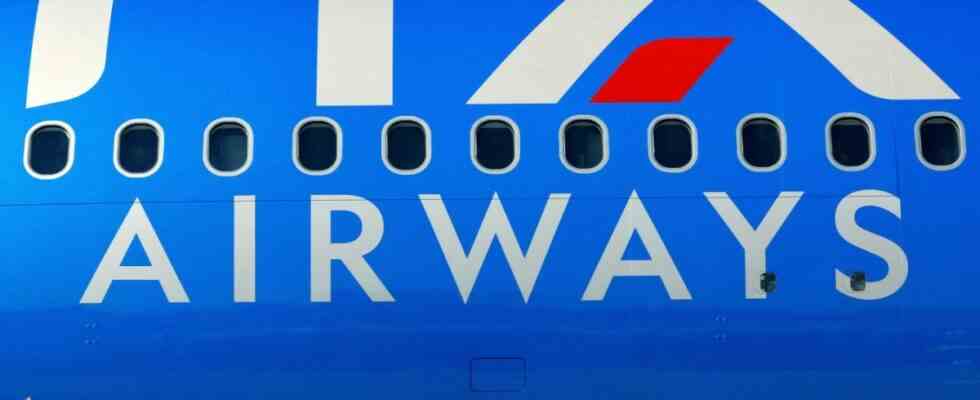Apparently, Rome cannot do without turbulence. The fate of Europe’s airline, which has been hit hardest by permanent crises and losses, is marked by about-faces and adventurous coups. Now the endless saga about the bankrupt Alitalia, from which the successor ITA Airways emerged ten months ago, has reached a surprising turning point. Lufthansa and its partner, the major Swiss shipping company MSC, are not involved in the privatization of the state airline. The Roman Ministry of Finance sorted out the offer from the duo that had been favored for months. The Italian Ministry of Finance announced on Wednesday that it would enter into exclusive negotiations with its rival, the American fund company Certares, about the sale of a majority stake in ITA.
A month before the new elections in Italy, the decision of Mario Draghi’s resigned government shattered all of Lufthansa’s expectations. “Certares’ offer was more in line with the objectives of the privatization decree,” the Treasury said. MSC and Lufthansa had already submitted an initial offer to take over 80 percent on their own initiative last January. As a result, the government launched a bidding process to sell its 100 percent stake in ITA in February. Since then, the ministry has requested improvements to the submitted offers three times. At the beginning of August, both the German-Swiss team and the US financial investor submitted their third offer. Crucial for the decision were the big differences in the role that the Italian state is supposed to play. “Certares is ready to guarantee the state a much stronger influence,” says Andrea Giuricin, a transport expert from Milan’s Bicocca University.
The American investment fund wants to buy 60 percent of the airline from the Roman finance minister for 650 million euros. This leaves the state with a 40 percent share. Certares expressly guarantees the government a much stronger influence on the future of the airline. The Ministry of Finance will receive two posts on the future ITA Board of Directors and may appoint the President. Certares also grants the ministry the right to veto certain issues. Air France-KLM and the American airline Delta are also involved, but they are not participating as shareholders. It is not ruled out in Rome that Air France could later take a 9.9 percent stake in ITA once it has repaid its Corona aid to the French state.
In Frankfurt, the decision was taken calmly. “We continue to believe that our offer with MSC would have been the better solution,” the company said. “But apparently one goes the way with more state influence and no complete privatization,” commented the Lufthansa spokesman. MSC and Lufthansa had offered 850 million euros for 80 percent of ITA, which has already lost almost 500 million euros since its launch last October. MSC should be represented on the board of directors with three seats and Lufthansa and the Roman Ministry of Finance with one seat each.
The two bidders had been convincing, or so it seemed for months, with their industrial strategy to rescue the heiress of the insolvent Alitalia, which has never been in the black since 2000. Alfredo Altavilla, head of ITA Airways, was said to be sympathetic to their solution. Even the Italian unions, which had resisted every attempt at privatization tooth and nail for decades, supported the offer. Above all, however, Prime Minister Draghi and his influential economic policy adviser Francesco Giavazzi were in favor of an alliance with strong industrial partners such as Lufthansa and the shipping company MSC of the Italian Gianluigi Aponte, the world market leader in container shipping and number three in the cruise business.
But now a financial investor from New York is entering into exclusive negotiations with the Roman Ministry of Finance. The market share of Alitalia and its successor ITA has fallen to 3.9 percent in their home country in 2021. Industry experts don’t give the Roman airline a chance to assert itself in the highly competitive aviation business. Whether Draghi can complete the sale before he is replaced by the new government is questionable. “We are really only at the beginning of a long process that will be very complex to complete,” says Giuricin.

